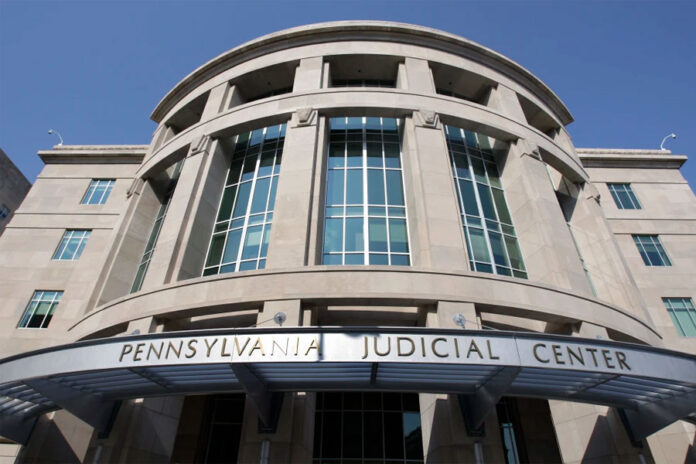
HARRISBURG, Pa. — Philadelphia cannot impose stricter firearms regulations than are allowed by state law, Pennsylvania’s Democratic-majority state Supreme Court ruled unanimously Wednesday, a blow to city leaders looking for ways to stem gun violence.
The justices ruled 6-0 to uphold a lower court’s dismissal of a lawsuit filed by the city, the nonprofit group CeaseFirePA and family members of gun violence victims.
They had sought to throw out a state law that has long prohibited municipalities from regulating the ownership or possession of guns or ammunition. Under it, courts in Pennsylvania have thrown out decades of local firearms measures, including a 1990s-era assault weapons ban in Pittsburgh.
Justice Kevin Brobson’s majority opinion acknowledged the tragedy of gun violence and that “a serious problem exists.” But, he wrote, the court’s role was not to decide whether laws passed by the Legislature are adequate to address the challenge.
“There is nothing for us to do in the absence of a constitutional violation or other infirmity” in state firearms laws that preempt local ordinances, Brobson, a Republican, wrote.
Gun-rights proponents hailed the decision. On his website, Joshua Prince, a lawyer who advocates for gun rights in court cases, called it a “monumental decision.” The nonprofit organization Pennsylvania Gun Rights called it a “huge win.”
“For two years, Pennsylvanians have lived with this threat that localities might soon be allowed to create their own gun laws — including outright bans,” the organization wrote on Facebook. “Today, that fear is lifted.”
Republicans in the General Assembly, joined by a segment of Democrats, have voted repeatedly in recent years against proposals backed by many urban and suburban lawmakers to restrict gun ownership or gun owners’ rights.
In a statement, Philadelphia Mayor Cherelle Parker’s administration said the court’s decision means that Philadelphia cannot enact “many common-sense regulations of firearms that are proven to reduce gun violence and save lives.”
“While we are disappointed with this result, the Parker administration will continue to seek remedies to Philadelphia’s deadly gun violence crisis through every legal tool in the toolbox at our disposal,” Parker’s administration said.
House Speaker Joanna McClinton, D-Philadelphia, who in the past has supported an assault weapons ban and other gun control measures, said the decision was disappointing for communities that are wrestling with gun violence.
“However, today’s decision underscores that the General Assembly ultimately bears the responsibility for approving commonsense gun safety measures that can prevent violence and keep Pennsylvanians safe,” McClinton said.
Just eight states allow cities and towns to pass their own gun safety laws, according to the anti-gun-violence group Everytown for Gun Safety.
The lawsuit raised what Brobson called a novel approach to the constitutionality and validity of firearms preemption laws. The plaintiffs argued the laws violate the constitutional guarantee of due process of law, constitute a type of state-created danger, and interfere with Philadelphia’s health and disease prevention laws.
Adam Garber, executive director of CeaseFirePA, which works to end gun violence, said the organization was “deeply disappointed by the court’s decision that will continue to handcuff local governments’ ability to save the lives of their residents. The Pennsylvania General Assembly’s refusal to act has exacerbated this crisis and it’s time for them to change their approach.”
Philadelphia Police Department statistics show homicides have fallen in 2024 after several years of much higher rates that coincided with a national surge in gun violence. Through Wednesday, the city had recorded 228 homicides in 2024.
In 2023, the city recorded 410 after hitting what it says was a record high of 562 in 2021.
Researchers say gun violence is down in most big cities this year. The Center for American Progress said earlier this year that Philadelphia had seen the most significant decline in gun violence in 2024 of the 50 most populous U.S. cities.
The FBI reported violent crime in the U.S. had dropped in 2023 by about 3% from the year before, including a drop of 12% in murders and non-negligent manslaughter. That was in line with findings by the nonpartisan Council on Criminal Justice, which reported 13% fewer homicides across 29 cities during the first half of 2024 from the year before.






